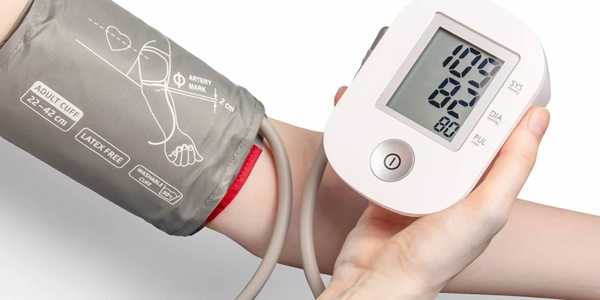5 Signs You May Have a Mental Health Disorder & How to Help?
Nowadays, many people suffer from mental health problems. Most of us grapple with these issues without realizing it. For instance, you might feel unusually lazy and be unable to explain why. This could be a sign of an underlying mental health concern.
But if these feelings are ignored, they can cause much more significant issues. Your relationships might suffer. Work becomes harder. Life loses its spark. It is a difficult path that leads to being alone with no one to turn to.

But hope is out there, and you are not the only one stuck in this situation. This post will reveal five signs that may indicate a mental health disorder. We will also tell you what to do next or what further steps you should take.
Awareness of these symptoms is the first step to recovery. By the time you have finished reading this post, you will have a good idea of your mental health state and know what to do if there is a rising need for action.
So, let's start a new beginning in improving your mental health.
The Power of Mental Health Awareness
Being aware of the signs of mental health problems can improve your life. The more you recognize them early, the better and the right help you can seek as early as possible. It is like getting the flu early; you get well faster.
When one takes good care of the mind, all aspects of life improve. Relationships improve. Work becomes easier. You feel good about yourself again.
If not addressed, such signs worsen the situation even more. Problems pile up, and life gets more challenging. However, the situation does not have to be this way.
Knowing that you have issues with your mental health is a strength. It demonstrates that you are a responsible person who thinks about your future life. It is a crucial step that leads to enjoying the best quality of life.
So take care of yourself. Listen to your thoughts. Be aware of how you are acting or maybe how you are feeling. It is equally important to pay as much attention to your brain as you do to your physical self.
Recognizing Potential Indicators of Mental Health Concerns
Now that we understand why mental health awareness matters, let's look at some key signs. These might show you're dealing with a mental health issue.
Remember, having one or two doesn't always mean you have a disorder. But it might be time to talk to someone if you notice several.
1. Persistent Feelings of Sadness or Anxiety
We all feel down or worried sometimes. But when these feelings stick around for weeks or months, it might be more than a bad mood. Depression & anxiety disorders can make you feel stuck in a negative emotional state.
Watch out for these signs:
● You don't enjoy things you used to love
● Your sleep is all over the place
● It's hard to focus on tasks
● You get headaches, or stomach aches more often
2. Significant Changes in Eating or Sleeping Habits
Mental health can mess with your basic needs, like eating and sleeping. Significant changes here often point to deeper issues. Eating disorders and sleep problems often go hand in hand with mental health troubles.
● Healthy vs. Concerning Changes:
● Healthy: Trying a new diet, occasional late night
● Concerning: Skipping meals often, can't sleep most nights
3. Withdrawal From Social Activities and Relationships
Pulling away from friends and family can be a red flag. It's both a sign of mental health issues and something that can make them worse. We need people in our lives to stay mentally healthy.
Quick Check: Have you
● Have you stopped calling friends?
● Have you skipped family events lately?
● Did it feel like being alone all the time?
If you checked these boxes, it might be time to reach out.
4. Extreme Mood Swings or Uncontrollable Anger
If your emotions feel like a roller coaster, pay attention. Healthy people have ups and downs, but extreme shifts might mean something's off. Learning to manage your feelings is critical to good mental health.

Example:
● Healthy: Getting upset, then calming down
● Unhealthy: Yelling at someone over a small mistake
5. Difficulty Coping with Daily Stressors
Everyone faces stress, but mental health issues can make everyday problems feel huge. It's normal to feel stressed sometimes. But if small things always feel overwhelming, that's different.
Try this quick stress check:
1. List what's stressing you out
2. Rate each from 1-10
3. Think about how you handle each one
4. If everything feels like too much, consider talking to someone
Getting Help for Your Mental Health
If you've noticed some of these signs, don't worry. There are many ways to get support and feel better. Let's look at some options:
Talk to someone you trust. Sometimes, opening up to a friend or family member can help. They might offer a new perspective or listen.
See your doctor. Your regular doctor can check for a physical cause and refer you to a mental health expert if necessary.
Try therapy. A therapist can teach you ways to cope and work through your feelings. It's like having a personal mental health coach.
Join a support group. Meeting others who understand what you're going through can be powerful. You're not alone.
Consider medication. For some people, medication helps balance brain chemicals. It's not for everyone, but it can make a big difference.
Remember, asking for help is brave, not weak. It's the first step to feeling better. If you're in crisis, call a helpline. They're there 24/7. You can also take an online mental health screening to learn more about what you're experiencing.
Don't wait to reach out. Your mental health matters, and help is out there.
Your Mental Health Matters: Take the First Step Today
You've learned about the signs of mental health issues and ways to get help. Now, it's time to apply that knowledge.
Don't wait for things to get worse. Many people who got help wish they'd done it sooner. They say, "I feel like myself again", or "I didn't realize how much better life could be."
Every day you wait is a day you could be feeling better. Imagine waking up feeling lighter, happier, & more in control. That's what getting help can do.
You wouldn't ignore a broken arm, right? Your mental health deserves the same care. Taking action now could change your whole life.
So, if you've noticed any of these signs, reach out, talk to someone, make that doctor's appointment, or join a support group. Your future self will thank you.
Remember, you're not alone in this. Millions have taken this step and found a better path, and you can, too.
Don't let another day go by. Your mental health journey starts now. Take that first step today.
Frequently Asked Questions
Q: Can mental health disorders go away on their own?
Ans: While some mild issues might improve with time, most mental health disorders need treatment. Without help, they often get worse. It's best to seek support early rather than hoping it will disappear.
Q: How do I know if I need professional help for my mental health?
Ans: If your symptoms last for weeks, interfere with daily life or cause significant distress, it's time to seek help. Trust your gut – if you're worried enough to ask this question, it's worth talking to a professional.
Q: Are mental health disorders genetic?
Ans: Genetics can play a role, but they're not the whole story. Your environment, life experiences, and brain chemistry also matter. Having a family history doesn't mean you'll develop a disorder, but it might increase your risk.
Q: What should I expect from my first therapy session?
Ans: Your first session is usually about getting to know each other. The therapist will ask about your concerns & history. You can ask questions, too. It's a chance to see if you feel comfortable with them.





